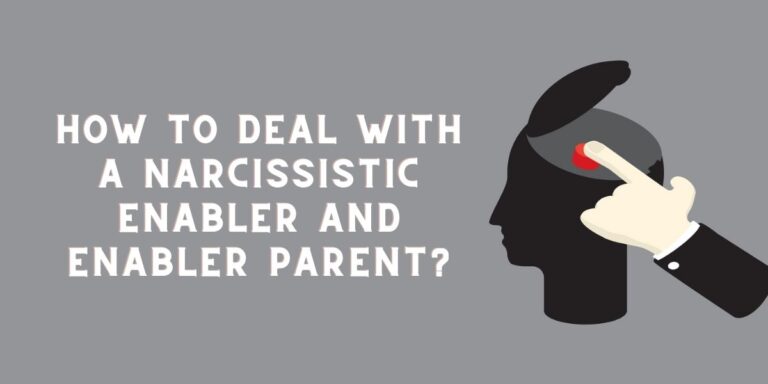Can You Get PTSD From Narcissistic Abuse?
If you’ve ever been in a relationship with a narcissist, you know it’s like being trapped in a funhouse mirror maze—except there’s nothing fun about it. Narcissistic abuse is a unique form of emotional and psychological torment that can leave deep, invisible scars. But can you get something serious like PTSD or its complex form, known as C-PTSD (Complex PTSD)? Let’s see if you can get PTSD From Narcissistic Abuse
What Is Narcissistic Abuse, and Why Does It Hurt So Much?
Narcissistic abuse is a systematic pattern of manipulation, gaslighting, belittlement, and control inflicted by someone with narcissistic traits or Narcissistic Personality Disorder (NPD). Unlike physical abuse, which leaves visible marks, narcissistic abuse is insidious. It chips away at your self-esteem, distorts your reality, and leaves you feeling like a shell of your former self.
Over time, this emotional rollercoaster can take a severe toll on your mental health. But can it really cause PTSD?
Would You Get PTSD From Narcissistic Abuse?
Yes, you can get PTSD from Narcissistic abuse as it is a form of psychological trauma that can lead to anxiety, depression, and mental health challenges. Research has shown that emotional abuse, including narcissistic abuse, can lead to symptoms of PTSD.
Post-Traumatic Stress Disorder (PTSD) is a mental health condition triggered by experiencing or witnessing a traumatic event. PTSD is typically associated with life-threatening events like war, natural disasters, or violent assaults.
However, the Diagnostic and Statistical Manual of Mental Disorders (DSM-5) now recognizes that PTSD or C-PTSD can also result from prolonged exposure to emotional abuse, especially in situations where the victim feels trapped or powerless. Narcissistic abuse from your relationship, friendship, colleagues or from your dysfunctional family fits this description perfectly, isn’t it?
A study published in the Journal of Traumatic Stress found that individuals who experienced emotional abuse were just as likely to develop PTSD as those who experienced physical or sexual abuse. This is because the brain doesn’t differentiate between physical and emotional trauma—it processes both as threats to survival.
How Narcissistic Abuse Rewires Your Brain to Have PTSD?
Narcissistic abuse doesn’t just hurt your feelings—it can literally rewire your brain. When you’re subjected to chronic stress and emotional manipulation, your brain’s fight-or-flight response goes into overdrive.
Think of it like this: your brain is a computer, and the narcissist is a virus. They infiltrate your system, corrupt your files, and leave you struggling to reboot.
In that case, you are more likely to get Complex PTSD (C-PTSD).
C-PTSD develops from prolonged, repeated trauma, such as childhood abuse, domestic violence, or narcissistic abuse in long-term relationships.
Symptoms Unique to C-PTSD:
Distorted Self-Perception – Feeling fundamentally flawed or unworthy of love.
Emotional Dysregulation – Sudden mood swings, difficulty managing anger or sadness.
Chronic Fear of Abandonment – Even after escaping the narcissist, victims struggle with deep-seated insecurity.
Dissociation – Feeling disconnected from reality or like an observer in one’s own life.
Read: Traits that attracts Narcissists
Wake up Call
Before getting to the healing part, here’s something for you to read and laugh at. This might sound funny but is a wake-up call for you to heal!
- Where they twist reality so much, you start questioning if the sky is actually blue.
- Showering you with affection until you’re hooked, only to pull the rug out from under you.
- Where everything is your fault, even their decision to wear mismatched socks.
- Because nothing says “mature adult” like giving someone the cold shoulder for days on end.
What is the Best Way to Heal from Narcissistic PTSD?
Seek Professional Help Of Course! However, before that you might need to do these two things
- Acknowledge the Abuse: The first step is recognizing that what you went through was not your fault. Narcissists are master manipulators, and it’s easy to blame yourself for their behavior. But you are not the problem—they are.
- Accept that, Narcissists don’t change: Duly accept that the narcissist will never change eventually or take accountability for the abuse caused. Stop expecting them to feel guilt for the abuse or maybe even consider giving a fresh start for the relationship that you never had.
Know: Am I a Narcissist?
Upon Seeking a professional help, the therapist can help you process your trauma, rebuild your self-esteem, and develop healthier coping mechanisms. Then your healing process might include having the following,
- Set Boundaries: Narcissists thrive on crossing boundaries. Learning to set and enforce boundaries is crucial for protecting your mental health.
- Practice Self-Compassion: Be kind to yourself. Healing is a process, and it’s okay to take it one day at a time.
- Connect With Others: Surround yourself with supportive friends and family who uplift and validate you. You don’t have to go through this alone.
A Message to Survivors
If you’re reading this and thinking, “Can I ever recover from this?” the answer is a resounding yes. You are not broken, and you are not alone. Narcissistic abuse can leave deep wounds, but those wounds can heal. It takes time, patience, and a lot of self-love, but you have the strength to rebuild your life.
If you’re struggling, don’t hesitate to reach out for help. You deserve to live a life free from fear, manipulation, and emotional pain. And remember, the best revenge against a narcissist is a life well-lived. So, go out there and shine—you’ve got this.






